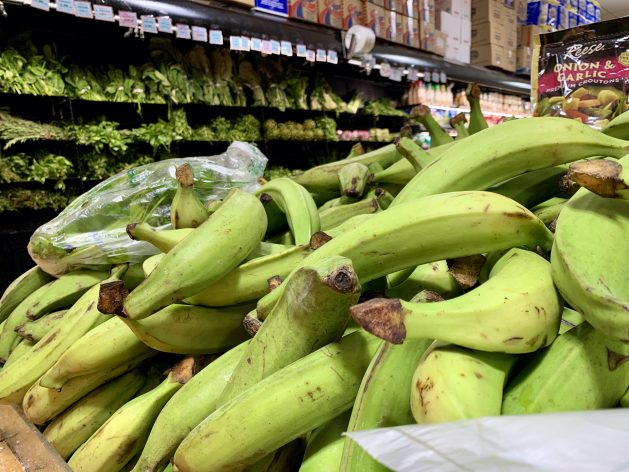Eastern Caribbean Youth Join Calls for Resilient Global Food Systems

Aug 26 (IPS) - As the international community prepares for the landmark United Nations Food Systems Summit, a pivotal gathering as part of a global goal to tackle food insecurity, hunger, biodiversity loss, and climate change through sustainable food production, Caribbean youth say the successful transformation of food systems must include young innovators.
On Youth Day 2021, young agriculture entrepreneurs from the Eastern Caribbean and Barbados joined agriculture experts from the Inter American Institute for Cooperation on Agriculture and United Nations agencies like the Food and Agriculture Organization to discuss the role of youth in food systems transformation.
They shared ideas on how young people, governments, and lending agencies can work together to help youth in agriculture.
“What is preventing a few young people within a community to have small greenhouse units in their backyards and collectively produce for a particular market?” asked Jeshurun Andrew, Saint Lucian youth advocate, and agriculture extension officer.
“Why don’t we see our governments establishing greenhouse facilities, where you have 50-100 greenhouses within a certain space, with shared security, where youth can rent a greenhouse, with the support of development banks?”
Andrew said Caribbean youth who have witnessed farmers endure the vicious cycle of planting and destruction following storms and other hazards need assurance that they have adequate support in bad times.
“Price volatility and disaster risk are things that farmers face all the time. Maybe the young person looking at agriculture from the outside, a young person who went to school and understands the risks associated with agriculture, would look at the industry and feel a lot safer knowing that there is insurance that can protect them if they got into agriculture.”
The young agriculture advocates have also urged governments to ensure continuing farmer education programs and enact land-use policies across the region that protect agricultural lands.
Keithlin Caroo, the founder of Helen’s Daughters, a Saint Lucia-based project which empowers rural women’s economic development in agriculture, said no discussion on food systems transformation is complete without addressing the gender gaps in agriculture.
“We need to include women in the goal of redefining the narrative of the agricultural sector. There is the hurdle of ‘you don't look like a farmer,’ that it’s the office job and high heels for women, the expectation for us not to go into agricultural jobs. Women face similar obstacles to youth in agriculture including lack of finance and access to land.”
Caroo has called for financing reform. She told the forum that traditional lending institutions like commercial banks are risk-averse and collateral-based, often showing low levels of investment in the agricultural sector.
She is suggesting adopting non-traditional financing mechanisms, particularly for women in agriculture. She referenced the Saint Lucian women farmers she works with, some of who have partnered with a major supermarket chain for a micro-lending scheme.
The youth panelists all agreed that improving access to finance for youth in agriculture should be a priority for Caribbean governments.
They said nutrition must also be a hallmark of the push to build resilient food systems.
“I became the change I wanted to see. I was consuming mainly processed foods and decided to change my diet. I started eating what I grow, and my family members and people in my community started seeing the difference in me. I impacted the people around me. I’m now figuring ways to positively feed the people. You do not many of our local foods in our stores and on supermarket shelves. The competition with processed food is there, and we need to make a bigger dent in the natural side of things,” said Mc Chris Morancie, a young Dominican and founder of Generation Honey, a business that produces organic honey and other natural products.
The virtual event was organized by the United Nations Office to Barbados and the Eastern Caribbean, in partnership with the 15th Session of the United Nations Conference on Trade and Development (UNCTAD 15). The Office’s Resident Coordinator Didier Trebucq said the dialogue was an important platform for youth to share their experiences, ideas, and solutions on food systems transformation.
“As we move towards the staging of the United Nations Food Systems Summit in September, now is the time for science, policy, and innovation to be combined into real solutions to transform the way we produce, consume and even think about food. We really count on young people to be major stakeholders in this,” he said.
“In this climate emergency where youth are one of the most impacted groups, we need to tap into the tremendous potential that young people have to serve as change agents for climate action and food security, and for that, they should be given a voice.”
This week’s youth dialogue answered the call for UN agencies to engage young people in food systems dialogue as part of International Youth Day 2021.
It was held under the theme “Transforming Food Systems – Youth Innovation for Human and Planetary Health.”
Follow @IPSNewsUNBureau
Follow IPS New UN Bureau on Instagram
© Inter Press Service (2021) — All Rights Reserved. Original source: Inter Press Service
 Global Issues
Global Issues